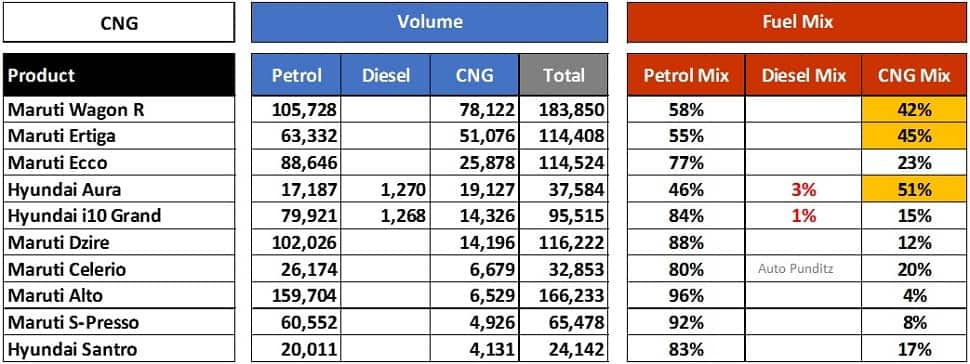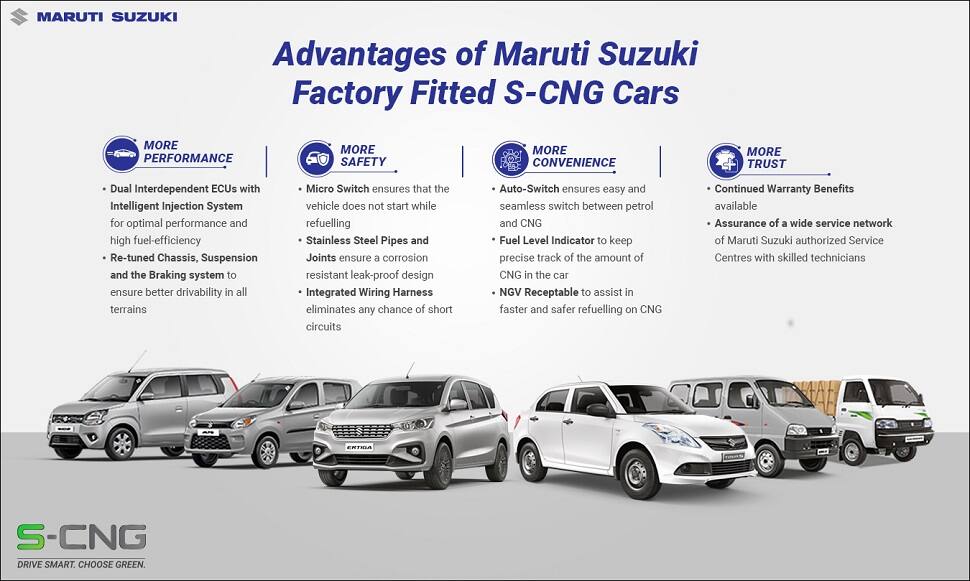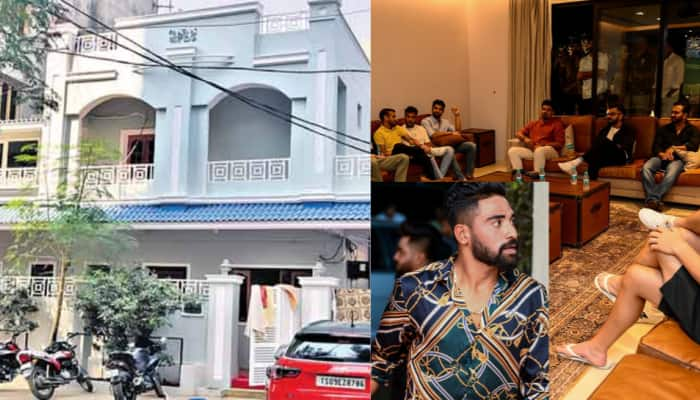Exclusive: Maruti Suzuki is focusing on CNG cars, proving to be a game changer in green vehicles
Maruti Suzuki is offering the widest bouquet of CNG products in India with eight models having CNG variants and many more planned in the future.
- Maruti Suzuki is the leading CNG car maker in India
- CNG cars have low cost of buying and have low cost of running
- Maruti Suzuki aims to offer CNG variants in more than 10 models
Trending Photos
) Image for representation
Image for representation The world is fast moving towards electrification of automobiles and India is trying to catch up to the speed of countries like China and many EU nations who have fast adopted the electric vehicles. In India, though, the government is focusing on electrification of commercial vehicles and two wheelers by offering multiple sops to both manufacturers and buyers. However, like always, four wheelers remain the poster boy for electric vehicles in India.
Electric cars with high battery range and modern features are seen as a way to enter India’s growing EV segment. A lot of mass carmakers as well as luxury carmakers are now offering EVs to customers in India. Amidst all this, the country’s leading carmaker Maruti Suzuki India has time and again cornered itself from the electric wave stating that their idea of clean energy is CNG (compressed natural gas) rather than electric vehicles.
Also read: Upcoming Maruti Suzuki cars to launch in 2022: Vitara Brezza, Alto and more
While Maruti Suzuki did initially think of offering the Wagon R in electric version, the company’s top management has decided to sway away from the whole idea of a small electric vehicle and rather offer CNG in all their vehicles. Maruti Suzuki is offering the widest bouquet of CNG products in India with eight models now having CNG variants.
S-CNG is what Maruti calls the technology and it’s only limited to Maruti Suzuki Arena products. With no fixed timeline, Maruti Suzuki has announced that the NEXA range of products like Baleno, XL6 among others can also get CNG variants in the near future. If that happens, Maruti Suzuki will have a spread of at least 10 CNG products in the portfolio.

Maruti Suzuki CNG sales
Sales wise, the company is expecting a sales number of 2.5 lakh units of CNG variants for the current fiscal, up from 1.60 lakh units in FY21, 1.06 lakh units in FY20, 1.05 lakh units in FY19 and 0.75 lakh units in FY18. The sales of CNG variants is increasing on month-on-month basis to about 18 per cent in Q4 2021 as compared to 11 per cent in the same period an year ago.
Maruti Suzuki has already sold around 1.50 lakh CNG vehicles by the end of 2021. Going by the current trend, Maruti Suzuki will finish the FY22 with 1.35 million car sales in total and CNG sales of 2.5 lakh implies a robust 20% of the overall sales numbers, making Maruti the biggest CNG maker in India.
Also read: Despite Ukraine-Russia war, India's auto sector reports robust sales performance
Maruti Suzuki vs Electric Vehicles
For almost 2 years, a Maruti Suzuki Wagon R electric prototype was seen on Delhi-NCR roads doing road testing, fuelling speculations on the brand launching an EV in India. Neither did Maruti shoot down the rumours as the brand was chasing the government orders being fulfilled either by Tata Motors or Mahindra, both offering their sedans with 100+ km range in under Rs 10 lakh. However, Maruti Suzuki later realized the disparity between the cost of making ICE Wagon R and electric Wagon R and halted the idea of launching eWagon R for some time.
Rather, the company is now focusing on CNG. As per the management of Maruti Suzuki, until the brand is able to crack the pricing of the EV, it doesn’t make sense to put the vehicle on road just for the sake of it, garnering miniscule sales numbers. As seen in the case of almost all the EVs on sales in India and also from the numbers given by Maruti Suzuki, an electric car is priced as much as double the cost of its ICE counterpart. Case in point, the Tata Nexon starts at Rs 7 lakh while the Nexon electric starts at Rs 13 lakh. Similarly, the MG Astor starts at Rs 12 lakh, while MG ZS EV starts at Rs 23 lakh.
If Wagon R is to be analyzed by the same lens, the electric version will cost at least Rs 10 lakh for a regular 200 km range battery and Rs 11 lakh for a long range 300+ km battery. This, plus the issue of limited charging stations, is holding Maruti Suzuki back from going all out on EVs. However, the brand has reiterated time and again that as and when technology evolves and the battery cost comes down, the brand will be ready with a superior and high range EV.

Why Maruti is focusing on CNG?
Shashank Srivastava, Executive Director, Maruti Suzuki claims that the CNG segment is here to stay. He further says that while electric vehicles are incredibly low on cost of running, they have a high initial cost of acquisition. CNG vehicles, on the other hand, cost as high as diesel engine version of any vehicle and have a running cost as low as Rs 1.70 per kilometre, while petrol vehicles have Rs 5.20 per kilometre running cost. This makes CNG vehicles a replacement of diesel engines in the immediate run.
Further, the number of CNG stations have increased and are available in most number of cities. “Earlier, the number of cities covered were just about 120 or so and we had just 1,400 CNG pumps in the country. Today, we have about 3,500 pumps across 250 cities and in a few years, they are to go up to 10,000 covering about 330 cities,” Srivastava said in a conference. He says that as the CNG infrastructure increases, growth of CNG segment is inevitable. There are about 4,000 CNG fuel stations across 250 cities, up from 1,400 stations in 150 cities 3-4 years ago.
Analysis courtesy - Autopunditz
Stay informed on all the latest news, real-time breaking news updates, and follow all the important headlines in india news and world News on Zee News.
Live Tv







)
)
)
)
)
)
)
)
)
)
